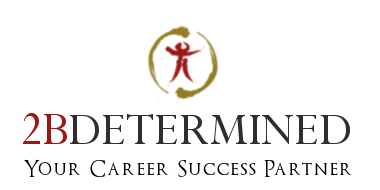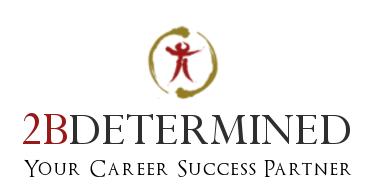Assessment Services
If you don’t know who you are, how can you determine where you belong?

Assessment Services
If you don’t know who you are, how can you determine where you belong?
Assessments – Putting the parts together
Our career assessments and exercises help identify your hard and soft skills as well as your inherent preferences for learning, communicating and handling a range of work-related situations. With that knowledge, we help you correlate those skills, strengths and attributes with career options that make sense for you to explore.
Depending on your level of experience and career goals, we offer a range of career assessments that can help point you in the right direction. After a full intake/diagnostic process, we’ll select from among the following career assessments those that will meet your unique needs and circumstances.
Career Exploration Assessments
Career Interests
- Career Interest Profiler: This online survey takes about 20 minutes to complete and links areas of work interest to job satisfaction. You will receive a comprehensive report that identifies your top interest areas and 20-40 matching jobs as well as suggestions on what to focus on in your career so the next stage of your working life allows you to drive greater impact and achieve more success via work that is a true “fit.”
- Strong Interest Inventory: Based on the Holland Code™ that classifies jobs into 6 categories, the Strong paints a clear picture of how your specific interests and learning, leadership and risk-taking styles link to various jobs, work settings and career fields.
Career 360 Feedback
Getting input on your career plans from others who know you in a work context is very revealing and can help us conduct a Career “SWOT” to identify your key Strengths and Weaknesses and the career Opportunities and Threats you will face in the market.
Career Values Scale
Values are part of our core beliefs and give meaning to career and life. How our values are aligned with our career have a major impact on job satisfaction. This assessment includes values clarification exercises and an in-depth analysis of your current career situation.
Core Strengths Analysis
In addition to identifying the experience, knowledge and attributes you can and want to contribute, we’ll determine what you want from your job/career and how your work goals support your personal goals.
LifeWork Reflections
This exercise asks you to reflect deeply on the activities that have meaning and significance for you, the principles that guide your life choices, your lifetime goals and how you deal with significant pressure. It also helps determine the support you want from your coach-especially when you’re ‘stuck’– so we can help you refocus and return to action.
Personality Type
The Myers Briggs Type Indicator (MBTI) is the best known and most widely used personality instrument, this assessment will identify occupational matches with your personality type via an easy-to-read graphic report. It also explores preferred work tasks and environments as well as most/least popular occupations for you with strategies for improving job satisfaction.
Work Personality Index
This assessment provides insight into your work personality and the kinds of work you enjoy. It describes your work style and approach to solving problems, managing change and dealing with stress. The report includes exercises to help you understand your work strengths and develop a plan for changing or confirming career choices.
Performance Assessments
Communication Effectiveness
Only about 7% of the “meaning” of a communication comes from content! Understand your natural communication preferences so you can expand your range of responses and be more effective in getting your ideas across.
Conflict Handling Preferences
People have preferred ways of handling the conflicts they experience in both work and personal situations. Researchers have identified five conflict handling styles. This assessment will help you understand your natural preferences for dealing with conflict and the appropriate applications and implications of each.
Emotional Intelligence
Emotional Intelligence is defined as “the capacity to be aware of, control, and express one’s emotions, and to handle interpersonal relationships judiciously and empathetically.” Learn your current Emotional Quotient or EQ, so you can become even more effective in work and personal contexts.
Learning Styles
Recognizing that everyone has a natural learning style, this theory groups the ways that people learn into 7 styles. While each of us uses a mix of learning styles, you may discover that you have a dominant style and use others far less or that you use different styles in different circumstances. Understanding your own learning preferences also sensitizes you to the dominant styles of others in the workplace.
Social Styles™ Inventory
Have you ever wondered why you hit it off with some people while with others it’s like oil and water? That’s because there are four primary behavioural styles, each with a very distinct and predictable pattern of observable behaviour. Once you understand these patterns, you have the key to unlock your ability to get along with nearly anyone. This assessment will help communicate more effectively with others with a different style-in your personal life as well as on the job.
Team Preferences & Roles
Teamwork is a given in every work scenario these days. This assessment is designed to help you understand the degree to which you enjoy being part of a team and identify the role that you tend to assume in team settings.
Leadership Assessments
Leadership Competencies
In additional to identifying the personal qualities that distinguish leaders from followers and effective leaders from ineffective ones, behavioral/competency approaches focus on individual managerial competencies and can predict how individuals will perform in a particular job function. Leadership Architect™ is an assessment that helps you identify which of 67 leadership competencies you possess so you can leverage your strengths and avoid potential career stallers and stoppers.
Leadership Style
While there are 4 basic leadership styles, we all have a “natural” style we tend to rely on. Effective leadership is task-relevant, so there is no single “best” style of leadership. Become even more successful as a leader by identifying your preferred style and understanding its benefits and shortcomings so you can adapt to different circumstances.
Note: If you have completed any of these or other assessments, they can be incorporated into our coaching process. We are trained/certified in in well over a dozen different assessments frequently used in organizational settings such as the Birkman Method and DiSC.

